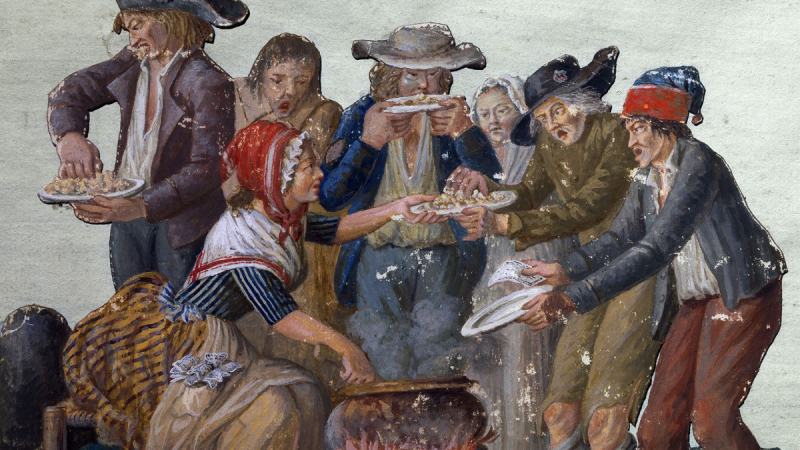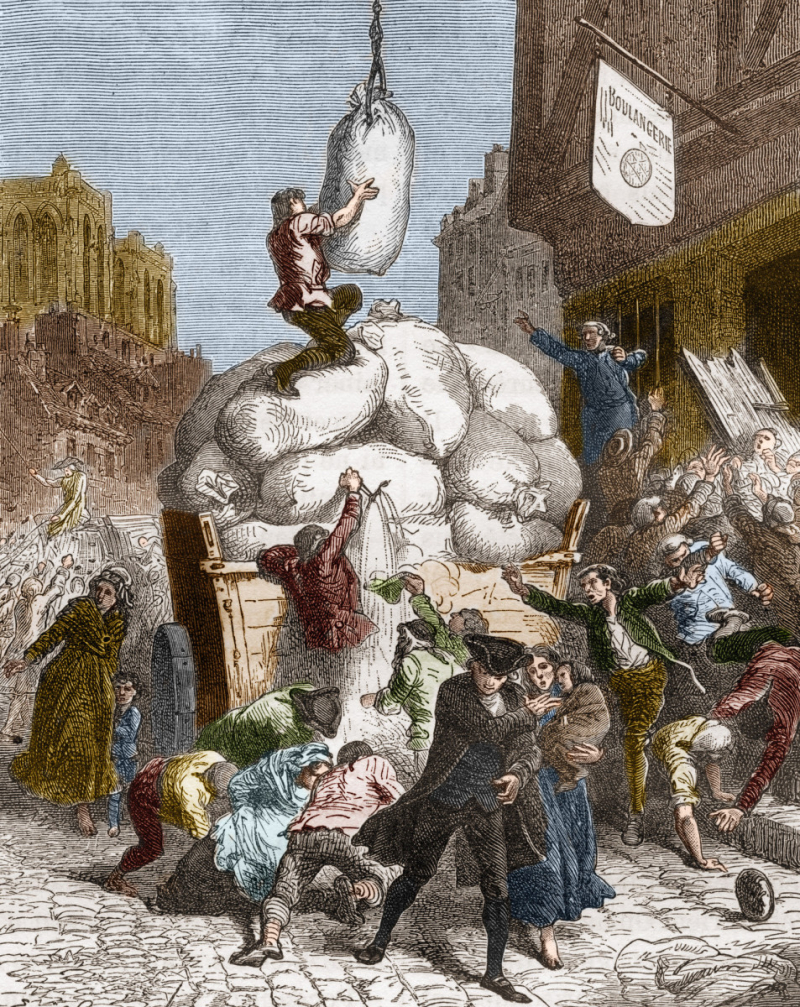The Rise In The Cost of Bread
Bread shortages played a role in fanning animosity at the monarchy, however the French Revolution was clearly driven by a number of issues more complicated than the price of bread. "Let them eat cake!" is an apocryphal remark attributed to Marie Antoinette in response to her subjects' lack of bread. It symbolizes how food might become a flash point in French history.
In the French city of Lyon, riots erupted in 1529 due to poor grain harvests. Thousands robbed and burned the homes of wealthy inhabitants during the so-called Grande Rebeyne (Great Rebellion), dumping grain from the municipal granary onto the streets.
In the 18th century, things only grew worse. The king had been advised by Physiocrats, a group of economists who believed that a nation's wealth was primarily derived from the value of land development and that agricultural products should be expensive, since the 1760s. The crown had sought sporadically, under their counsel, to deregulate the domestic grain trade and impose a type of free trade.
It was a complete failure. Food shortages and excessive prices sparked a popular uprising in the Paris Basin towns and villages in late April and early May 1775. In just over three weeks, there were over 300 riots and grain pillaging excursions reported. The Flour War was the name given to a wave of public protests. The rioters invaded Versailles before spreading into Paris and outward into the countryside.
A variety of causes contributed to the escalation of the issues in the 1780s. There had been a massive increase in population (France had 5-6 million more people in 1789 than in 1720) without a corresponding increase in native grain output. Another important difficulty was the French people's refusal to consume anything other than a cereal-based diet. Bread was approximately 60-80 percent of a wage earner's family's budget in the Ancien Régime, thus even a slight increase in grain costs may cause difficulties.
So we can say that the rise of the cost of bread is one of the major causes of the French Revolution, but it did not put an end to French concerns about bread. The Constituent Assembly entirely deregulated domestic grain markets on August 29, 1789, barely two days after finishing the Declaration of the Rights of Man and Citizen. Fears of speculation, hoarding, and exportation arose as a result of the change.












